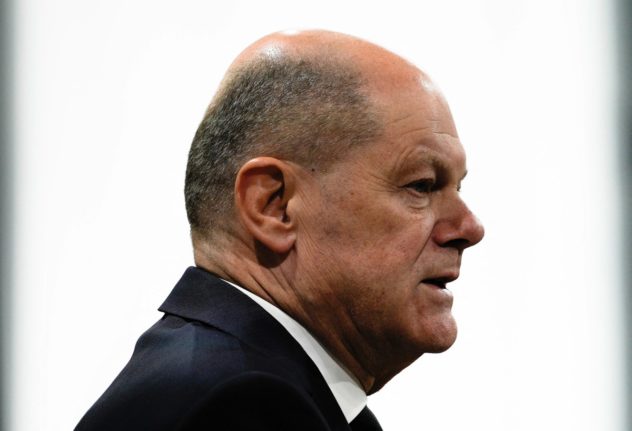“Attacks on our democracy concern us all,” Scholz said in a video podcast Thursday.
“That’s why we can’t stand idly by when our public officials, campaigners or volunteers are brutally attacked. When campaign posters for the European elections are destroyed.
“The answer that each of us can give is very simple — go vote,” he said.
Two politicians from Scholz’s Social Democrats (SPD) have been assaulted in the past week.
Matthias Ecke, the head of the SPD’s European election list in the Saxony region, was set upon last Friday by a group of youths as he put up election posters in the eastern city of Dresden.
The four teenage attackers are thought to have links to the far-right group known as “Elblandrevolte”, according to German media.
Former Berlin mayor Franziska Giffey was at a library on Tuesday afternoon when a man came up from behind her and hit her on the head and neck with a bag.
The increased frequency of attacks has sparked calls for tougher action against those who target politicians.
In his podcast, Scholz also took aim at Germany’s far-right AfD party.
Without referring to the party by name, the chancellor hit out at those calling “for Germany to leave the European Union”.
“Our united Europe is too precious to be left to those who want to destroy it.”
The AfD, which wants to dismantle the EU in its current form, is among a crop of far-right parties across Europe expected to make gains at the June polls.
According to opinion polls, the anti-immigration party is set to win around 15 percent of the vote in Germany, tied in second place with the Greens after the conservative CDU-CSU alliance.
The AfD has been hit by several recent scandals in Germany, including allegations of suspicious links with Russia and China.
In the podcast, Scholz blasted those who “see (President Vladimir) Putin’s Russia or (President) Xi Jinping’s China as role models for Europe”.
“What self-destructive madness!,” he said.



 Please whitelist us to continue reading.
Please whitelist us to continue reading.
Member comments